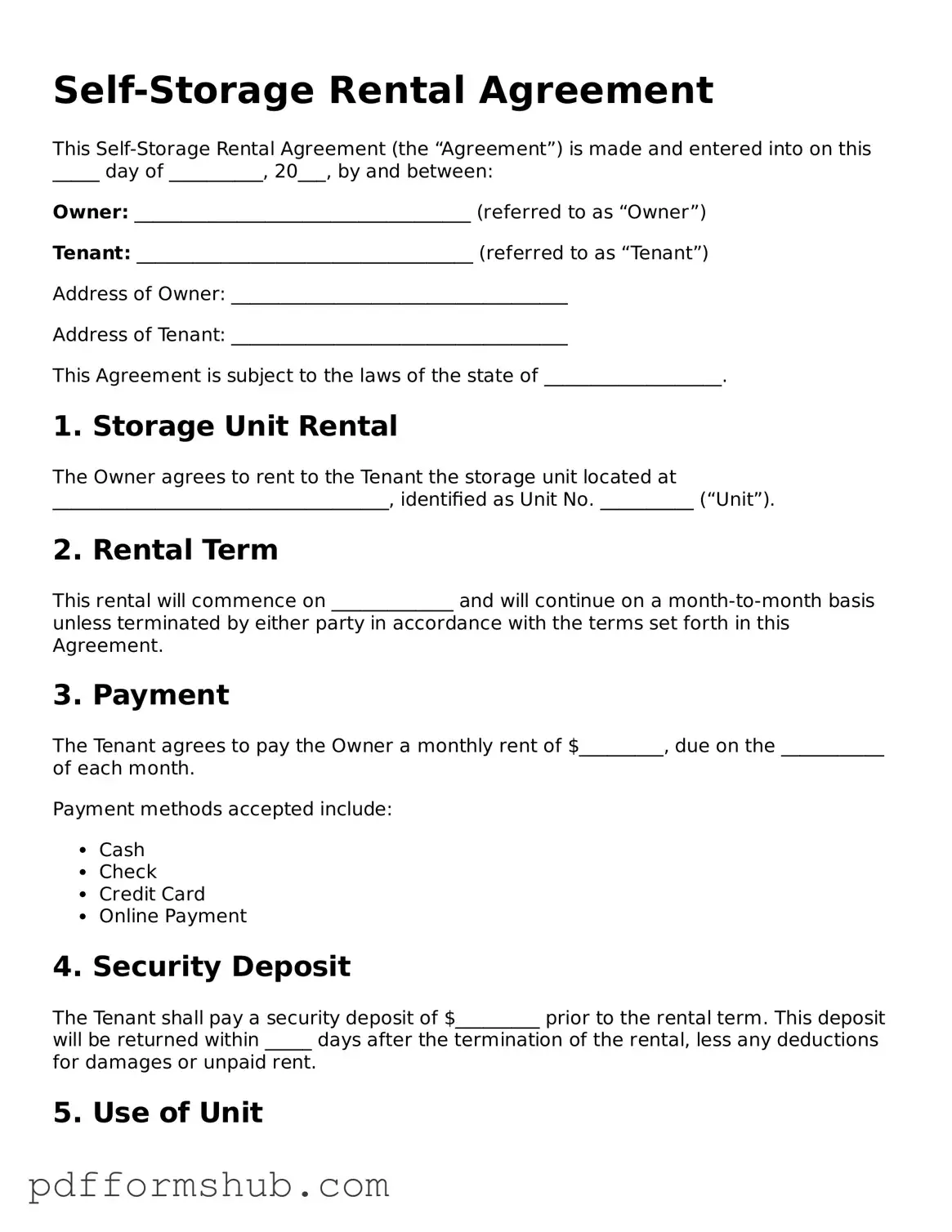Valid Self-Storage Rental Agreement Form
The Self-Storage Rental Agreement form is a legal document that outlines the terms and conditions between a storage facility and a customer renting storage space. This agreement serves to protect the rights of both parties and ensures clarity regarding rental fees, duration, and responsibilities. Understanding this form is essential for anyone looking to utilize self-storage services.
To fill out the Self-Storage Rental Agreement form, click the button below.
Customize Form

Valid Self-Storage Rental Agreement Form
Customize Form

Customize Form
or
Free PDF Form
Short deadline? Complete this form now
Complete Self-Storage Rental Agreement online without printing hassles.